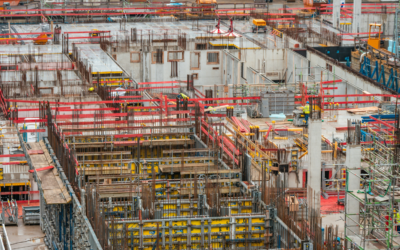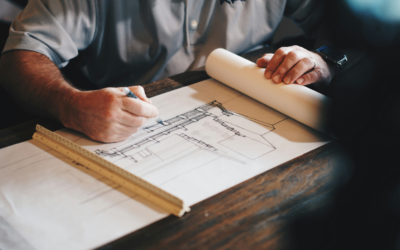The construction industry thrives on innovation and foresight, two elements that form the backbone of successful concept development. From the early stages of idea generation to the execution of a plan rooted in data and customer needs, concept development is the process that gives construction projects their foundation. For property developers, real estate investors, and business owners, mastering this process is not only essential—it’s transformational.
This blog will explore the concept development process in construction, from its historical roots to modern trends, while highlighting insights, innovative solutions, and best practices. We’ll also take a look at how South Coast Improvement Company (SCI) showcases best-in-class development strategies, delivering viable concepts that save time, reduce costs, and meet client expectations.

The Evolution of Concept Development in Construction
A Historical Perspective
Construction has come a long way from the ancient art of laying bricks and erecting structures. Historically, the focus was mostly on manufacturing cost, materials, and function. Over time, as economies grew and markets expanded, the industry shifted to prioritize not just functionality but also design, market potential, and client-specific needs.
Modern Needs in Construction
Today, success in construction hinges on creating sustainable, innovative, and customer-centric projects for the right target audience. The concept development process has evolved into an approach that blends critical thinking, technical expertise, and a deep understanding of market trends. The integration of design and function, supported by collaborative processes like Design-Build, has become pivotal for achieving seamless concept execution.

Understanding the Concept Development Process
What is Concept Development in Construction?
At its core, concept development is about transforming abstract ideas into viable concepts that address real customer needs while adhering to budgets, timelines, and compliance standards. A well-structured development process ensures that these ideas aren’t just creative but practical and cost-effective.
Key Steps in the Concept Development Journey
The concept development guide can be broken into these key steps:
- Market Research: Conduct thorough data analysis to understand your target market, buyer personas, and industry needs. This step ensures your project aligns with customer needs and market potential.
- Idea Generation: Use tools like brainstorming sessions, mind mapping, and different perspectives to generate as many ideas as possible. Creative thinking at this stage lays the groundwork for promising projects.
- Evaluate Potential Solutions: Narrow down to the most promising ideas by assessing feasibility, costs, and customer impact. Tools like user testing can help predict success during the early stages.
- Create Strong Concepts: Refine chosen ideas into strong concepts by incorporating innovative designs, sustainable materials, and efficient workflows. Aim for a balance of functionality, aesthetics, and cost-efficiency.
- Test and Improve: Conduct user testing to collect customer feedback, make improvements, and identify any challenges before full execution.
- Execute the Plan: A solid development process transitions smoothly into execution with precise coordination and communication.

The Role of South Coast Improvement Company in Concept Development
South Coast Improvement Company (SCI) stands at the forefront of construction innovation. Their Design-Build Service Package simplifies the concept development process, ensuring that projects meet both client expectations and operational efficiency.
SCI’s Design-Build Expertise
SCI offers a unique “single source” model, where their team manages both design and construction phases. This integrated approach minimizes conflict between architects and builders, delivering final projects that realize the client’s vision. Key benefits of SCI’s Design-Build Service Package include:
- Faster Timelines: Simultaneous design and construction phases streamline schedules, saving time on every project.
- Cost Savings: By identifying long-lead items and using smart bid packages, SCI reduces unforeseen expenses, making the process more cost-effective.
- Enhanced Collaboration: Clear communication among teams ensures customer satisfaction and fewer setbacks.
Success Stories
Examples of SCI’s expertise include:
- Atria Merrimack Place ($18M Project) – This project showcased SCI’s ability to translate a big idea into a reality that aligned perfectly with client objectives.
- Equity Residential Project ($1.5M) – Through collaborative designs and precise execution, SCI exceeded expectations while staying within the budget.

Best Practices for Effective Concept Development
1. Prioritize Collaboration
Involve all stakeholders early in the project to gather insights, different perspectives, and ensure alignment. Open communication fosters trust and clarity.
2. Leverage Customer Feedback
Understanding key pain points of potential clients is crucial. Regularly collect and analyze feedback to refine your approach.
3. Foster Creative Thinking
Encourage brainstorming sessions, mind mapping, and other techniques that push your team toward innovative ideas and unique solutions.
4. Balance Ambition with Feasibility
While pursuing new ideas can be exciting, focus on viable concepts that are sustainable, budget-friendly, and practical.
5. Use Technology to Save Time
Adopt tools like BIM (Building Information Modeling) to visualize and manage projects more effectively.

Moving Forward with Concept Development in Construction
When executed well, concept development can transform abstract ideas into successful projects that meet customer needs and drive industry innovation. From performing thorough market research to collecting customer feedback, taking the right steps in the development process ensures a streamlined, effective, and visionary approach.
Whether you’re looking to streamline a process, explore innovative solutions, or reduce manufacturing costs, involving experts like South Coast Improvement Company can bring clarity to your concept development journey.
Looking for a trusted partner for your next project? Explore the benefits of SCI’s Design-Build Service Package and redefine what’s possible in construction.
Resources
Here are some helpful resources to further support your concept development journey in construction:
- Construction Dive: Stay updated with the latest news, trends, and insights in the construction industry.
- National Institute of Building Sciences: Access valuable research, publications, and educational resources related to building sciences and construction.
- American Institute of Architects (AIA): Explore the AIA’s extensive resources, including design guides, contract templates, and professional development opportunities.
- Construction Specifications Institute (CSI): Gain access to construction standards, specifications, and best practices through the CSI’s resources and educational offerings.
- Project Management Institute (PMI): Explore project management methodologies and best practices to enhance your project planning and execution.
- Associated General Contractors of America (AGC): Stay informed about industry news, advocacy efforts, and professional development opportunities through the AGC’s resources.
- Building Owners and Managers Association (BOMA) International: Access resources on property management, sustainability, and industry trends from BOMA International.
- National Association of Home Builders (NAHB): Explore resources and research related to home building, remodeling, and industry advocacy from NAHB.
- American Society of Civil Engineers (ASCE): Stay up-to-date with advancements in civil engineering and access educational resources through ASCE.
- Construction Financial Management Association (CFMA): Access resources related to construction financial management, including industry benchmarking, best practices, and professional development opportunities from CFMA.
These resources can provide valuable insights, guidance, and industry knowledge to support your concept development efforts and ensure successful project outcomes.
View Our Work
Aspen Dental
Partnering with The Aspen Group on the construction of a new Aspen Dental facility that’s functional & welcoming for patients & staff alike. South Coast Improvement Company was awarded the construction of a new Aspen Dental facility in Killingly, CT. The...
Springhouse Senior Living – HumanGood
Designed to enhance comfort & functionality. South Coast Improvement company was hired by HumanGood for an interior and exterior renovation at Springhouse Senior Living. Our skilled teamtransformed the 2nd through 5th floor common areas into brighter, more...






